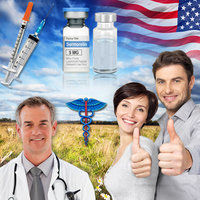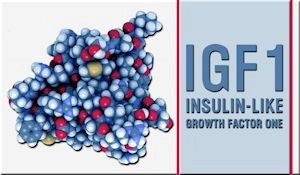Introduction
Vasectomy, a common form of permanent contraception, has been widely adopted by American males seeking a reliable method to prevent pregnancy. While the procedure is known for its high efficacy and minimal invasiveness, concerns regarding its long-term effects on testicular function and fertility remain prevalent. This article delves into the post-vasectomy outcomes concerning hormonal balance and fertility, providing insights into the implications for American men.
Understanding Vasectomy and Its Mechanism
Vasectomy involves the surgical severing or sealing of the vas deferens, the tubes that transport sperm from the testicles to the urethra. This procedure effectively prevents sperm from being ejaculated, thus serving as a contraceptive method. Despite the interruption of sperm transport, the testicles continue to produce sperm, which are subsequently reabsorbed by the body.
Hormonal Changes Post-Vasectomy
One of the primary concerns following a vasectomy is the potential impact on hormonal levels. Studies have shown that vasectomy does not significantly alter testosterone production. The Leydig cells, responsible for testosterone synthesis, remain unaffected by the procedure. Research conducted on American males post-vasectomy has consistently demonstrated that testosterone levels remain within normal ranges, thereby preserving libido and secondary sexual characteristics.
However, there is a noted increase in the production of follicle-stimulating hormone (FSH) and luteinizing hormone (LH) in some men. These hormones are crucial for spermatogenesis and testosterone regulation. The rise in FSH and LH levels may be attributed to the body's attempt to compensate for the obstruction in the vas deferens, although the clinical significance of these changes remains under investigation.
Impact on Fertility and Reproductive Health
Vasectomy is intended to be a permanent form of contraception, and its impact on fertility is profound. The procedure effectively prevents sperm from reaching the semen, rendering the individual infertile. However, the testicles continue to produce sperm, which are reabsorbed by the body, ensuring that the overall health of the testicles is maintained.
For American males considering vasectomy reversal, it is essential to understand that the success rates of reversal procedures vary. Factors such as the time elapsed since the vasectomy and the surgical technique used can influence the likelihood of restoring fertility. On average, vasectomy reversal results in pregnancy rates of approximately 50-70%, highlighting the importance of timely intervention for those wishing to regain fertility.
Long-Term Testicular Health
Longitudinal studies have been instrumental in assessing the long-term effects of vasectomy on testicular health. Data from American cohorts indicate that the incidence of testicular pain, known as post-vasectomy pain syndrome, is relatively low, affecting approximately 1-2% of men. This condition can be managed through various interventions, including medication and, in severe cases, surgical correction.
Moreover, there is no conclusive evidence linking vasectomy to an increased risk of testicular cancer or other malignancies. Regular self-examinations and routine medical check-ups are recommended to monitor testicular health, ensuring early detection and treatment of any abnormalities.
Conclusion
In conclusion, vasectomy remains a safe and effective method of permanent contraception for American males. The procedure does not significantly impact testosterone levels, ensuring the preservation of libido and secondary sexual characteristics. While fertility is affected, the possibility of vasectomy reversal offers hope for those who may wish to restore their reproductive capabilities. Long-term studies continue to affirm the safety of vasectomy, with minimal risks to testicular health. As with any medical decision, it is crucial for individuals to engage in thorough discussions with healthcare providers to weigh the benefits and potential implications of vasectomy on their overall health and well-being.
Contact Us For A Fast And Professional Response

- Testicular Cancer Survivorship: Navigating Health and Well-being Post-Treatment [Last Updated On: February 26th, 2025] [Originally Added On: February 26th, 2025]
- Testicular and Prostate Health: Interconnected Wellness for American Men [Last Updated On: March 16th, 2025] [Originally Added On: March 16th, 2025]
- Testicular Health and Fertility: Advances in Diagnosis and Treatment for Couples [Last Updated On: March 17th, 2025] [Originally Added On: March 17th, 2025]
- Testicular Health and Hormone Replacement Therapy: A Comprehensive Guide for American Men [Last Updated On: March 18th, 2025] [Originally Added On: March 18th, 2025]
- Exercise and Testicular Health: Enhancing Reproductive Wellness in American Males [Last Updated On: March 18th, 2025] [Originally Added On: March 18th, 2025]
- Understanding Testicular Pain: Causes, Diagnosis, and Treatment Options for American Males [Last Updated On: March 18th, 2025] [Originally Added On: March 18th, 2025]
- Economic Impact of Testicular Cancer Treatment on American Males: Costs and Disparities [Last Updated On: March 19th, 2025] [Originally Added On: March 19th, 2025]
- Testicular Health: Essential Knowledge for Young American Males [Last Updated On: March 20th, 2025] [Originally Added On: March 20th, 2025]
- Testicular Health and Mental Well-being: A Holistic Guide for American Males [Last Updated On: March 20th, 2025] [Originally Added On: March 20th, 2025]
- Smoking's Impact on Testicular Health: Risks and Remedies for American Males [Last Updated On: March 21st, 2025] [Originally Added On: March 21st, 2025]
- Testicular Health: Importance of Regular Check-ups and Self-Exams for American Men [Last Updated On: March 21st, 2025] [Originally Added On: March 21st, 2025]
- Testicular Cancer Screening Guidelines for American Men: Detection and Prevention [Last Updated On: March 21st, 2025] [Originally Added On: March 21st, 2025]
- Stress and Testicular Health: Impacts on American Men's Reproductive Wellness [Last Updated On: March 21st, 2025] [Originally Added On: March 21st, 2025]
- Diabetes Impact on Testicular Health: Insights for American Men [Last Updated On: March 21st, 2025] [Originally Added On: March 21st, 2025]
- Overcoming Psychological Barriers to Testicular Health Care in American Males [Last Updated On: March 22nd, 2025] [Originally Added On: March 22nd, 2025]
- Testicular Health and Autoimmune Disorders: A Comprehensive Guide for American Men [Last Updated On: March 23rd, 2025] [Originally Added On: March 23rd, 2025]
- Alcohol's Impact on Testicular Health and Fertility in American Men [Last Updated On: March 23rd, 2025] [Originally Added On: March 23rd, 2025]
- Community Support Enhances Testicular Health Awareness in American Males [Last Updated On: March 24th, 2025] [Originally Added On: March 24th, 2025]
- Steroid Use and Its Impact on American Men's Testicular Health: Risks and Recovery [Last Updated On: March 24th, 2025] [Originally Added On: March 24th, 2025]
- Testicular Health and Cardiovascular Disease: Insights for American Men's Proactive Care [Last Updated On: March 24th, 2025] [Originally Added On: March 24th, 2025]
- Public Health Campaigns Boost Testicular Health Awareness in American Men [Last Updated On: March 24th, 2025] [Originally Added On: March 24th, 2025]
- Occupational Hazards Impacting Testicular Health in American Male Workers: Risks and Prevention [Last Updated On: March 24th, 2025] [Originally Added On: March 24th, 2025]
- Nutrition's Impact on Testicular Health: A Guide for American Men [Last Updated On: March 24th, 2025] [Originally Added On: March 24th, 2025]
- Testicular Health and Sleep: Vital Links and Improvement Tips for American Males [Last Updated On: March 25th, 2025] [Originally Added On: March 25th, 2025]
- Illicit Drugs' Impact on Testicular Health: Risks and Protection Strategies for American Men [Last Updated On: March 25th, 2025] [Originally Added On: March 25th, 2025]
- Chemotherapy's Impact on Testicular Health: Insights for Male Cancer Survivors [Last Updated On: March 25th, 2025] [Originally Added On: March 25th, 2025]
- Ultrasound: Key to Diagnosing Testicular Conditions in American Males [Last Updated On: March 25th, 2025] [Originally Added On: March 25th, 2025]
- Telemedicine: Revolutionizing Testicular Health Care for American Men [Last Updated On: March 25th, 2025] [Originally Added On: March 25th, 2025]
- Exercise Boosts Testicular Health and Fertility in American Men: A Comprehensive Guide [Last Updated On: March 25th, 2025] [Originally Added On: March 25th, 2025]
- Testicular Health and Aging: Understanding Hormonal Changes in American Men [Last Updated On: March 25th, 2025] [Originally Added On: March 25th, 2025]
- Environmental Toxins and Lifestyle Impact on American Males' Testicular Health [Last Updated On: March 26th, 2025] [Originally Added On: March 26th, 2025]
- Understanding Testicular Health: Science, Conditions, and Reproductive Rights for American Men [Last Updated On: March 26th, 2025] [Originally Added On: March 26th, 2025]
- Breaking the Silence: Enhancing Testicular Health and Mental Well-being in American Males [Last Updated On: March 26th, 2025] [Originally Added On: March 26th, 2025]
- Testicular Health and Fertility Preservation: A Comprehensive Guide for American Males [Last Updated On: March 26th, 2025] [Originally Added On: March 26th, 2025]
- Socioeconomic Barriers to Testicular Health Care Access in American Males: Strategies for Improvement [Last Updated On: March 26th, 2025] [Originally Added On: March 26th, 2025]
- Testicular Health and Cancer Survivorship: Risks, Care, and Advocacy [Last Updated On: March 26th, 2025] [Originally Added On: March 26th, 2025]
- Testicular Health: Vital for Male Wellness and Chronic Disease Prevention [Last Updated On: March 26th, 2025] [Originally Added On: March 26th, 2025]
- Testicular Health and Chronic Pain Management Strategies for American Males [Last Updated On: March 26th, 2025] [Originally Added On: March 26th, 2025]
- Vitamins A, D, E, C, B: Essential for American Men's Testicular Health [Last Updated On: March 27th, 2025] [Originally Added On: March 27th, 2025]
- Genetic Counseling: A Key Tool in Preventing Testicular Cancer in American Males [Last Updated On: March 27th, 2025] [Originally Added On: March 27th, 2025]
- Antioxidants: Protecting Testicular Health and Enhancing Fertility in American Men [Last Updated On: March 27th, 2025] [Originally Added On: March 27th, 2025]
- Endocrine Disruptors' Impact on Testicular Health: Risks and Mitigation for American Males [Last Updated On: March 27th, 2025] [Originally Added On: March 27th, 2025]
- Testicular Health: Impact on American Men's Psychological Well-being and Body Image [Last Updated On: March 27th, 2025] [Originally Added On: March 27th, 2025]
- Radiation Therapy's Impact on Testicular Health: Effects, Protection, and Management [Last Updated On: March 27th, 2025] [Originally Added On: March 27th, 2025]
- Lifestyle Diseases and Testicular Health: A Guide for American Men [Last Updated On: March 28th, 2025] [Originally Added On: March 28th, 2025]
- Viral Infections and Testicular Health: Impacts, Mechanisms, and Prevention Strategies [Last Updated On: March 28th, 2025] [Originally Added On: March 28th, 2025]
- Testicular Health and Immune Function: A Vital Link for American Males [Last Updated On: March 28th, 2025] [Originally Added On: March 28th, 2025]
- Breaking Stigma: Enhancing Testicular Health and Mental Well-being in American Males [Last Updated On: March 28th, 2025] [Originally Added On: March 28th, 2025]
- Enhancing Testicular Health Awareness and Education in American Males [Last Updated On: March 29th, 2025] [Originally Added On: March 29th, 2025]
- Support Groups: Vital for Testicular Cancer Care and Recovery in Young American Men [Last Updated On: March 29th, 2025] [Originally Added On: March 29th, 2025]
- Heat Exposure's Impact on Testicular Health and Fertility in American Men [Last Updated On: March 30th, 2025] [Originally Added On: March 30th, 2025]
- Modern Lifestyles and Testicular Health: Risks and Mitigation Strategies for American Men [Last Updated On: March 31st, 2025] [Originally Added On: March 31st, 2025]
- Herbal Supplements for Testicular Health: A Guide for American Men [Last Updated On: April 1st, 2025] [Originally Added On: April 1st, 2025]
- Testicular Health: Understanding, Examining, and Preventing Common Conditions [Last Updated On: April 2nd, 2025] [Originally Added On: April 2nd, 2025]
- Testicular Health and Mental Resilience: A Comprehensive Guide for American Men [Last Updated On: April 3rd, 2025] [Originally Added On: April 3rd, 2025]
- Antibiotics' Impact on Testicular Health in American Men: Research and Implications [Last Updated On: April 4th, 2025] [Originally Added On: April 4th, 2025]
- Environmental Toxins and Testicular Health: Advocacy for Safer Policies [Last Updated On: April 7th, 2025] [Originally Added On: April 7th, 2025]
- Heavy Metals' Impact on Testicular Health in American Men: Mechanisms and Prevention [Last Updated On: April 8th, 2025] [Originally Added On: April 8th, 2025]
- Enhancing Testicular Health: Education, Lifestyle, and Environmental Strategies for American Males [Last Updated On: April 9th, 2025] [Originally Added On: April 9th, 2025]
- Understanding Testicular Health: Science, Disorders, and Literacy for American Males [Last Updated On: April 9th, 2025] [Originally Added On: April 9th, 2025]
- Enhancing Testicular Health Education: The Vital Role of Community Health Workers [Last Updated On: April 10th, 2025] [Originally Added On: April 10th, 2025]
- Advancements in Testicular Health: Diagnosis, Treatment, and Prevention for American Males [Last Updated On: April 10th, 2025] [Originally Added On: April 10th, 2025]
- Mental Health Professionals' Vital Role in American Men's Testicular Health Care [Last Updated On: April 10th, 2025] [Originally Added On: April 10th, 2025]
- Pesticide Exposure Linked to Testicular Dysfunction in American Men: A Comprehensive Review [Last Updated On: April 10th, 2025] [Originally Added On: April 10th, 2025]
- Enhancing Male Wellness: Integrating Testicular Health in Workplace Programs [Last Updated On: April 10th, 2025] [Originally Added On: April 10th, 2025]
- Testicular Health: Science, Disorders, and Proactive Care for American Males [Last Updated On: April 12th, 2025] [Originally Added On: April 12th, 2025]
- Physical Therapy: A Key to Managing Testicular Health in American Men [Last Updated On: April 12th, 2025] [Originally Added On: April 12th, 2025]
- Plastics and Male Health: EDCs' Impact on Testicular Function in American Men [Last Updated On: April 12th, 2025] [Originally Added On: April 12th, 2025]
- Testicular Health and Mental Well-being: A Comprehensive Guide for American Males [Last Updated On: April 17th, 2025] [Originally Added On: April 17th, 2025]
- Exercise Programs Boost Testicular Health and Male Reproductive Wellness [Last Updated On: April 17th, 2025] [Originally Added On: April 17th, 2025]
- Testicular Health and Mental Well-being: Awareness and Action for American Men [Last Updated On: April 17th, 2025] [Originally Added On: April 17th, 2025]
- Educational Campaigns Boost Testicular Cancer Awareness and Early Detection in American Men [Last Updated On: April 18th, 2025] [Originally Added On: April 18th, 2025]
- Enhancing Testicular Health: Nutrition, Education, and Awareness for American Males [Last Updated On: April 19th, 2025] [Originally Added On: April 19th, 2025]
- Testicular Health and Mental Well-being: Integrating Care for American Males [Last Updated On: April 19th, 2025] [Originally Added On: April 19th, 2025]
- Air Pollution's Impact on Testicular Health in American Men: Research and Implications [Last Updated On: April 19th, 2025] [Originally Added On: April 19th, 2025]
- Advancing Testicular Health: Science, Policy, and Advocacy Needs in the U.S. [Last Updated On: April 19th, 2025] [Originally Added On: April 19th, 2025]
- Water Contaminants and Testicular Health: Impacts on American Men's Fertility [Last Updated On: April 20th, 2025] [Originally Added On: April 20th, 2025]
- Genetic Testing: A Key to Managing Testicular Health in American Men [Last Updated On: April 20th, 2025] [Originally Added On: April 20th, 2025]
- Essential Guide to Testicular Health: Awareness, Prevention, and Care for American Males [Last Updated On: April 22nd, 2025] [Originally Added On: April 22nd, 2025]
- Testicular Cancer: Trends, Risks, and Effective Treatments in Young American Males [Last Updated On: April 22nd, 2025] [Originally Added On: April 22nd, 2025]
















